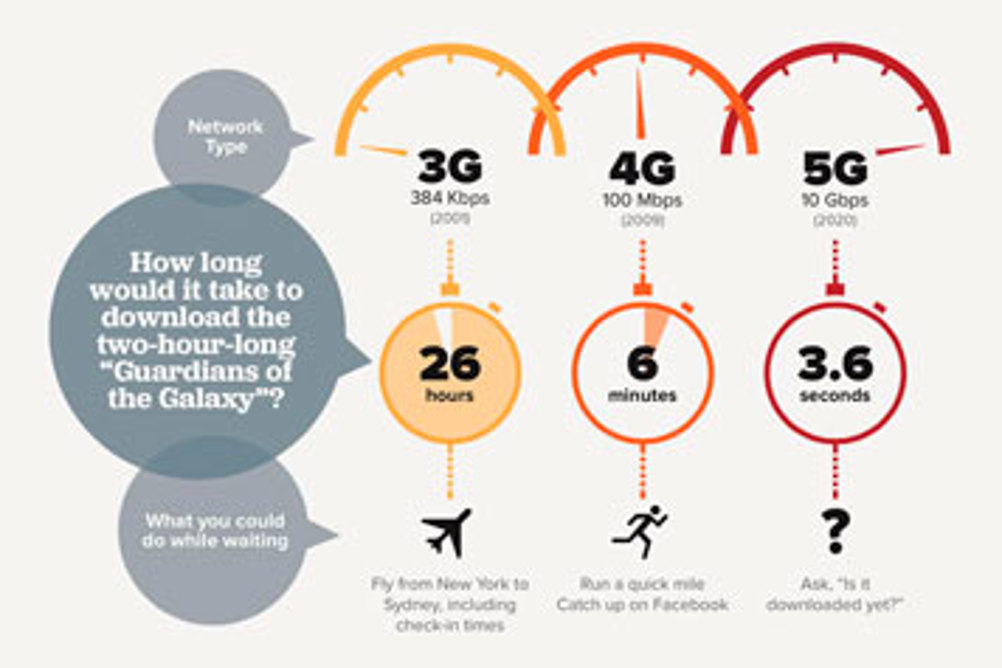
The global race is on to develop 5G, the fifth generation of mobile network. While 5G will follow in the footsteps of 4G and 3G, this time scientists are more excited. They say 5G will be different - very different.
At the Cambridge Wireless conference on the future of wireless last month delegates hear industry experts preview the big 5G questions – such as ‘What do we need it for?’ With disruption and change the main theme for this year’s CW Future of Wireless International Conference at the end of June industry experts took a close look at 5G and asking what is it, do we need it and what is it good for?
Appropriately, the event was organised by Cambridge Wireless (CW), the not-for-profit industry forum that started life as Cambridge 3G 15 years ago, providing a test bed for 3G applications based on what was considered at the time to be fast internet access.
“Consumers had a need for 2G and then 3G and 4G to make telephone calls and connect to the internet,” says Tony Milbourn, VP Strategy at u-blox and keynote speaker at the conference held in the Emirates Stadium in London.
“The focus is now on connecting things and most things don’t need super-low latency or mega bandwidth. So, is the standards-making machine on auto-pilot, developing a further extension of performance, while most people’s needs are pretty much satisfied by 4G, subject to better coverage of course?”
“When people ask me, ‘what is 5G?’ I still say that it is a research project,” says Paul Ceely, Head of Network Strategy at EE and CW board member.
“It’s early days and there is a huge set of requirements to address, some incremental and some transformational and this work can make a real difference to the experience and reach of communications networks. The UK has a great opportunity to lead the 5G ecosystem and there is an argument for a common test-bed environment to encourage greater cooperation and allow enterprises to build and trial new applications. Speaking to end users and innovators, it’s clear that we need to deliver consistency across operators and infrastructure providers so that the capabilities of 5G can be used from day one.”
According to the latest Mobile Economy report from the GSMA, 4G is still a relatively nascent technology on a global scale, with just under 7% of total connections by the end of 2014.
The report suggests that discussions centre on whether 5G will be a true generational shift in connectivity technology or the consolidation of existing 2G, 3G, 4G, Wi-Fi and various other technologies to provide vastly greater network coverage and always-on reliability.
“Mobile communications has realised much of the promise it offered back in 2000 and the mobile handset is heading towards becoming a remote control on life, providing extraordinary value to individuals,” says William Webb, deputy chair at CW, CEO of the Weightless SIG and President of the IET. “However, 5G threatens to take us in a different direction – away from device connectivity to ultra-complex solutions enabling data rates well beyond those of any significant rise in consumer value. As 5G research and standardisation unfolds, the problems will become ever more apparent. It is time to stop extrapolating data rates and take a more intelligent view of the future.”
Ed Says…
In case you were thinking this is all years ahead be aware that in South Korea, which spearheaded work on 4G, Samsung hopes to launch a temporary trial 5G network in time for 2018’s Winter Olympic Games. Not to be outdone, Huawei is racing to implement a version for the 2018 World Cup in Moscow.
All the headlines are going to be about the speed of 5G. We don’t know that figure precisely yet but recently Prof Tafazolli, the lead at the UK’s multimillion-pound government-funded 5G Innovation Centre at the University of Surrey, believes it is possible to run a wireless data connection at an astounding 800Gbps - that’s 100 times faster than current 5G testing.
When Samsung announced in 2013 it was testing 5G at 1Gbps, it was reported reported that a high-definition movie could be downloaded in less than half a minute. A speed of 800Gbps would equate to downloading 33 HD films - in a single second.
